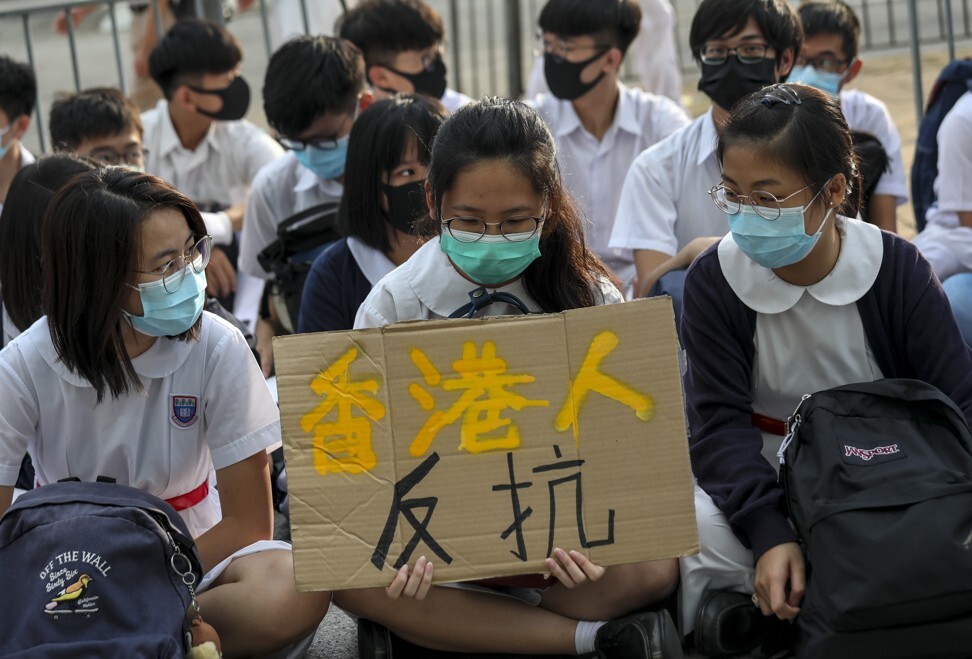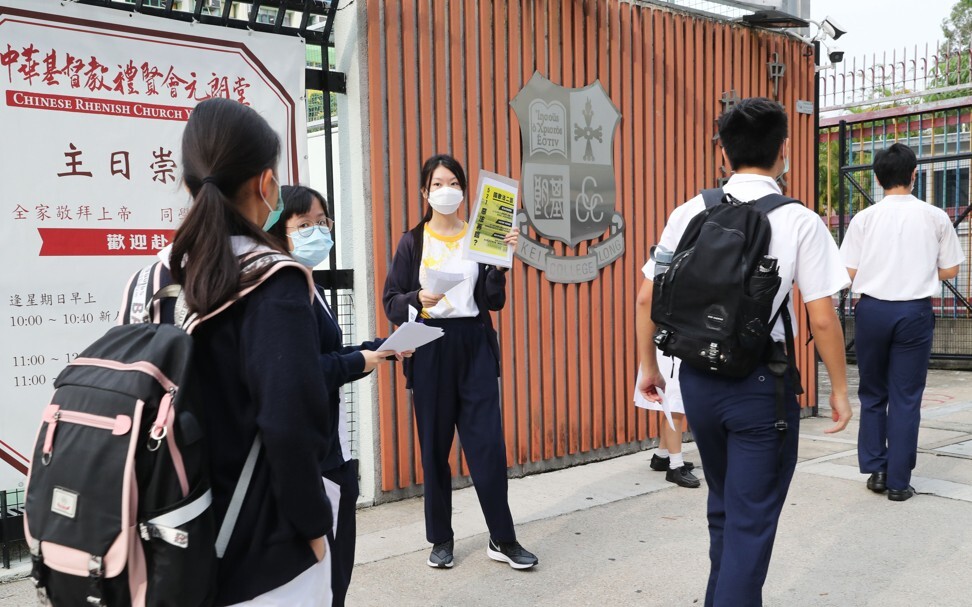
Why global protests require schools, parents and policymakers to work out ways to discuss them in the classroom
- Similarities exist between the year-long anti-government protests in Hong Kong and the protests that have rocked dozens of cities across the US
- It is important that discussion of them with students include teaching that they have a right to a voice, while respecting the legal rights of others
With massive protest movements under way around the world, teachers and parents face an unprecedented challenge. They need to teach and model behaviour so young people can learn they have a voice and how best they can use it.
Students everywhere are taking part in demonstrations, as well as witnessing and reading about them in the news and on different social media platforms. Rallies have been taking place in the United States, Britain, France, Canada, Australia, and many other places.
There are many similarities between the year-long anti-government protests in Hong Kong and the protests that have rocked dozens of cities across the US following the death of African-American George Floyd, killed by a white police officer who knelt on his neck.
In both places, the protests started as peaceful marches and rallies, but were followed by demonstrations where clashes between police and activists grew increasingly violent and law enforcement agencies used tear gas and rubber bullets. Eventually, in both places, the voices of dissent morphed into a broader call for political reforms and police accountability.

Students are using non-violent forms of expression to address issues of genuine concern to them as well as to the community they live in. Those who resort to violence need to realise that engaging in violent riots to protest against human rights abuses serves only to add one injustice to another. An eye for an eye and a tooth for a tooth results in everyone becoming toothless and blind. Nobody wins.
We need to make our children aware that their message is weakened by violence against police officers, who are simply doing their jobs by protecting people’s safety and protecting property against being vandalised by protesters. Beating up individuals who are clearing bricks and barricades put up by protesters is an outrage against those individuals who have different views.
Students fear impact of scrapping exams over coronavirus
Research by Jordi Muñoz and Eva Anduiza on the effects of violence on the popular support for social movements is summarised in the humanitarian journal Peace Science Digest.
“The choice between violence and non-violence is available to any protest movement,” they write. “Opting to engage in violence is more costly to the movement because it increases the chance of state repression and also reinforces the claims of those who oppose the movement.”
Patrick Hiller, editor of the journal, says peaceful protests can be more effective than violence. “Studies have shown that non-violent resistance, when used exclusively and deliberatively, is an effective vehicle for social change such as challenging existing power structures and calling for more democratic and representative systems of government.”

Nearly all non-violent resistance movements face the challenge of a turn towards violence. Studies show that non-violent discipline is key to sustaining the broad-based support critical to movements’ success. The use of violence can weaken this support, says Hiller.
The right to an education became necessary to ensure peace and stability after the second world war. Its inclusion in Article 26 of the Universal Declaration of Human Rights proclaimed in 1948 changed the world to one where most children can now get a basic education.
In their book, Teaching and Learning for the Twenty-First Century: Educational Goals, Policies, and Curricula from Six Nations, editors Fernando Reimers and Connie Chung say education needs to be relevant to the demands that students will face over the course of their lives.
To lead long and healthy lives, to contribute positively as active members of their communities, to participate economically and politically in local and global institutions, and to relate to the environment in ways that are sustainable – all these are challenges for students today.

The goals of a school education were recently compiled by the World Economic Forum. It grouped the educational needs of students into three categories: foundational literacy, which should include numeracy and scientific literacy; information communications literacy; and financial, cultural and civic literacy.
Schools should also endeavour to develop character qualities, including curiosity, initiative, persistence, adaptability and leadership, as well as social and cultural awareness. Finally, competency in critical thinking, problem solving, creativity, collaboration and communication is considered essential to living and working in our increasingly globally connected world.
Perhaps there is now a need for global conversations between different stakeholders – schools, parents and policymakers – on how best to incorporate non-violence and peaceful communication into classes on civic literacy.

Teaching effective communication skills needs to include teaching students their right to a voice and how they should express their message so it is effective while simultaneously respecting the legal rights of others.
Anjali Hazari is a retired international-school biology educator who has taught for three decades in Hong Kong and has received several accolades in her teaching career. She continues to tutor and write extensively on education policy and practice.

